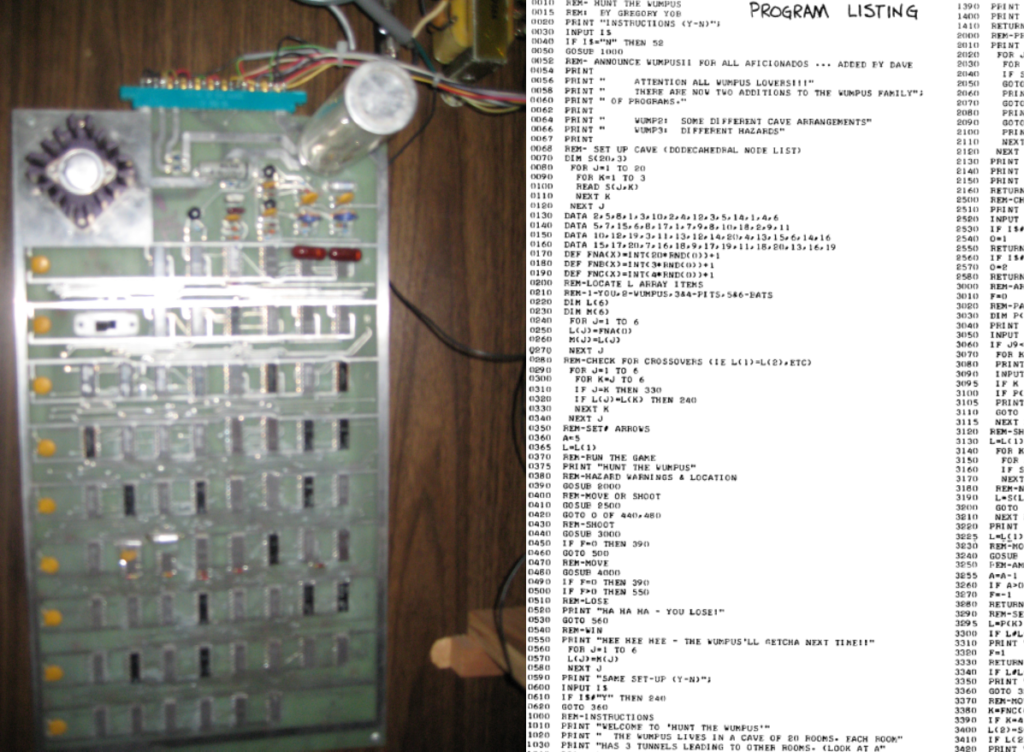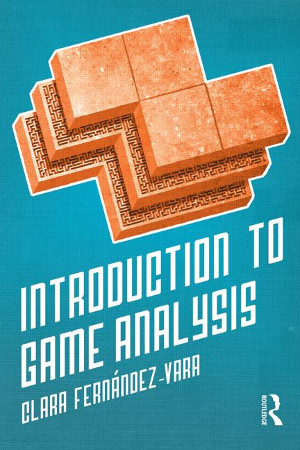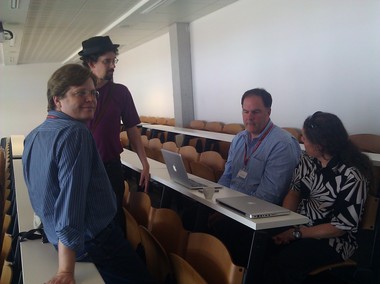The Platform Studies series from MIT Press is now about ten years old. The first book in the series, my & Ian Bogost’s Racing the Beam: The Atari Video Computer System, was published in 2009. (We also edit this series.) Before our book on the Atari VCS/Atari 2600 came out, we launched the site and announced the series, back at the end of 2006, and Ian and I were presenting about it at conferences the next year. So, although the exact birthday is uncertain, let’s say a (probably belated) happy 10th.

Nine books have been published in the series:
-
Racing the Beam: The Atari Video Computer System (2009) by Nick Montfort and Ian Bogost
-
Codename Revolution: The Nintendo Wii Platform (2012) by Steven E. Jones and George K. Thiruvathukal
-
The Future Was Here: Commodore Amiga (2012) by Jimmy Maher
-
Flash: Building the Interactive Web (2014) by Anastasia Salter and John Murray
-
I Am Error: The Nintendo Entertainment System (2015) by Nathan Altice
-
Peripheral Vision: Bell Labs, the S-C 4020, and the Origins of Computer Art (2015) by Zabet Patterson
-
Now the Chips are Down: The BBC Micro (2016) by Alison Gazzard
-
Minitel: Welcome to the Internet (2017) by Julien Mailland and Kevin Driscoll
-
Super Power, Spoony Bards, And Silverware: The Super Nintendo Entertainment System (2017) by Dominic Arsenault
It’s worth noting again that platform studies isn’t a subset of game studies. You can see this from the above list, which includes books about two home computers (the Amiga and BBC Micro), a software platform used for different purposes (Flash), a national telecommunications system (Mintiel), and a peripheral used to connect computing to motion picture film (the Stromberg-Carlson 4020). On the other hand, its intersection with game studies is quite significant; four books are about gaming platforms while games play an important role in most of the other five studies.
As Ian & I have written, we have put forth platform studies, as a concept and (in capital letters) as a book series, simply as a way to focus an investigation of computational media.
It isn’t a methodology or even a method. It doesn’t require or preclude any particular sort of scholarship or analysis. We do think that since computational platforms are the focus in platform studies, some serious engagement with their computational aspects is needed, but this engagement can come from many different directions, from people with training in many disciplines and interdisciplines.
The point of the series and concept is to invite a focus on platform, just as we already have studies that focus on particular national contexts, particular historical periods, particular game/creative genres, particular games and creative works, and work done by particular organizations, collectives, and individuals. We describe this in, for instance:
-
Bogost, Ian, and Nick Montfort. “Platform studies: Frequently questioned answers.” Proceedings of the Digital Arts and Culture Conference, 2009.
-
Bogost, Ian, and Nick Montfort. “New media as material constraint. An introduction to platform studies.” In Electronic Techtonics: Thinking at the Interface. Proceedings of the First International HASTAC Conference, pp. 176-193. 2007.
That said, we have put forth a five-layered model to explain what a computational platform is and how it interacts with other layers of digital media. (This was introduced in Montfort, Nick, “Combat in Context,” Game Studies vol. 6, no. 1, December 2006.) We do believe computational platforms can be defined and that they have significance. So platform studies is meant to be an inviting space, but it is not one that is completely unfurnished.
Several people have done critical writing about the platform studies concept in the academic literature:
-
Apperley, Thomas, and Darshana Jayemane. “Game studies’ material turn.” Westminster Papers in Communication and Culture 9, no. 1, pp. 5-25, 2012.
-
Apperley, Thomas, and Jussi Parikka. “Platform studies’ epistemic threshold.” Games and Culture 13, no. 4, pp. 349-369, 2018.
-
Leorke, Dale. “Rebranding the platform: The limitations of ‘platform studies.’” Digital Culture & Education 4, no. 3, pp. 257-268, 2012.
-
Plantin, Jean-Christophe, Carl Lagoze, Paul N. Edwards, and Christian Sandvig. “Infrastructure studies meet platform studies in the age of Google and Facebook.” New Media & Society 20, no. 1 (2018): 293-310.
Others have taken a platform focus in their studies outside of the series, often in articles. These are a few that have come to my attention:
-
Friedhoff, Jane. “Untangling Twine: A Platform Study.” Proceedings of DiGRA 2013: DeFragging Game Studies. 2013.
-
Helmond, Anne. “The platformization of the Web: Making Web data platform ready.” Social Media+ Society 1, no. 2, 2015.
-
Loudon, Melissa. “A platform studies approach to the role of technology in the ICTD ecosystem: The SMS in M4D interventions.” Information Technology for Development 22, no. sup1, pp. 7-25, 2016.
-
Švelch, Jan. “Platform Studies, Computational Essentialism, and Magic: The Gathering.” Analog Game Studies. July 11, 2016.
-
Tobin, Samuel. Portable Play in Everyday Life: The Nintendo DS. Palgrave: 2013.
Ian & I continue to welcome inquiries from potential Platform Studies authors. We are available, as we have been, to help prospective authors develop book proposals for the MIT Press.
While we welcome books on all sorts of platforms, we want to particularly encourage writers to think about some of the platforms of major historical importance that are not yet covered in the series:
-
The Apple II series, successful home computers for which many games and business applications first were developed; also the basis for the success of Apple Computer.
-
The Commodore 64, the best-selling single model of computer ever made; highly influential in early online systems, gaming, the demoscene, and music.
-
The IBM PC, whose open architecture led “PC compatible” machines to dominate in home and business computing by the end of the 1980s.
-
The Macintosh series, influential in bringing the GUI into popular use; used in education and desktop publishing; the basis for the continued success of Apple Computer/Apple Inc.
-
Microsoft Windows, the operating system/desktop platform that has dominated in business but also many creative contexts and propelled the success of Microsoft.
-
HyperCard, the first widely-used hypermedia system before to the Web, included for free with Macs when it was released in 1987.
Again, books focused on any platform — or on a series of computers or a closely-related family of platforms — are welcome in Platform Studies. If a case can be made for studying a platform, it doesn’t need to be a popular favorite throughout the world. And, even if a platform is very prominent, a proposal still needs to explain why a study of it will be valuable. I just don’t want authors to shy away from these six!
Updated July 26 to add an entry for Samuel Tobin’s book on the Nintendo DS.






